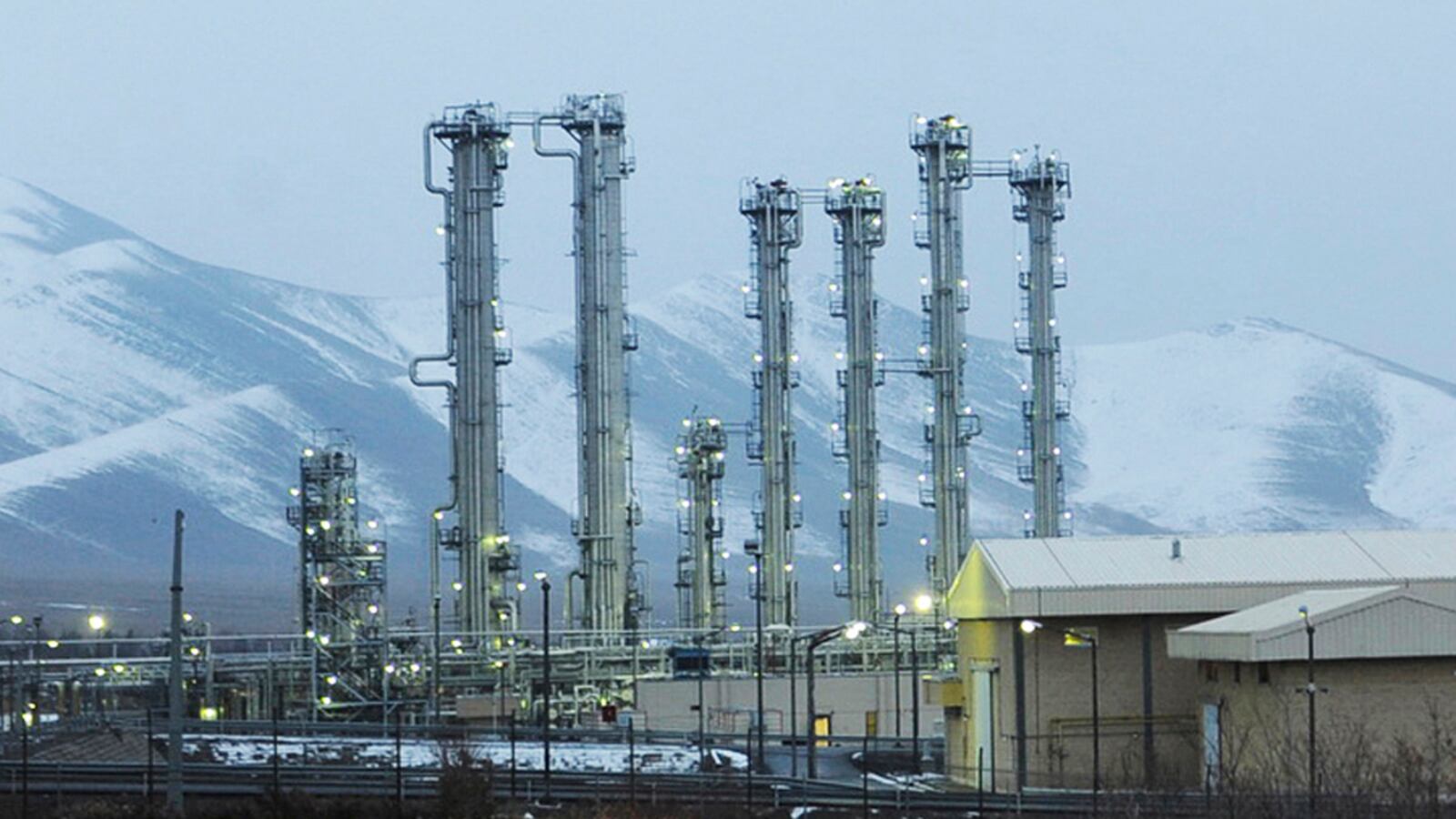Israel’s top Iran expert, a former spy who predicted the downfall of the shah in 1979, has news for President Barack Obama or anyone else hoping to talk Iran out of its nuclear program: forget about out-negotiating the mullahs.

Uri Lubrani, who was Israel’s ambassador to Iran from 1973 to 1978, told The Daily Beast that the Iran’s reported willingness to engage directly with the United States was yet another sign that sanctions were hurting the regime. But he said with dead certainty that Iran would not agree to stop enriching uranium—no matter what incentives it is offered.
His remarks, following a report in The New York Times that Iran had agreed to direct talks with Washington, echoed the skepticism of Israel’s top political officials, including Prime Minister Benjamin Netanyahu. But they carried more weight and less political baggage coming from Lubrani, who at 86 is among the grand old men of Israeli secret affairs.
“Under no circumstances will this regime divest itself of the nuclear program. They’ve gone much too far on it and been too successful. They’re going to continue with it, no matter what,” Lubrani said in an interview. He said the Iranian leaders he’d met over the years were all highly skilled negotiators who would run circles around American officials.
“They are traders in their tradition. They’re bazaaris. They know how to how to haggle, when to catch an adversary when he’s weak. They’re pros,” Lubrani said.
“It took me a long time to understand this. I developed a gut feeling out of sheer experience. No Ivy League graduate will ever really understand the soul and the tradition and the behavior of the Iranians.”
Lubrani helped spearhead relations between Israel and Iran in the 1970s that included military exchanges, oil deals, and commercial ties. The two countries even worked together on a developing a missile that could carry a nuclear warhead, according to reports.
But after visiting the shah’s lavish resort island of Kish in 1977, Lubrani cautioned Israeli officials at home that the regime had grown so corrupt, its days were numbered, according to various accounts. American officials apparently dismissed his warnings.
When Islamists ousted the shah in a 1979, Iran went from friend of Israel to menacing foe.
The report in The New York Times said Iran had agreed in principle to face-to-face talks but wanted them to start after the U.S. election next month. While administration officials denied a final agreement had been reached, the issue seemed sure to come up in the debate tonight between Obama and Republican presidential candidate Mitt Romney, the last one before the elections next month.
Iran says its nuclear program is civilian in nature but international agencies have repeatedly caught the regime hiding key facilities or lying about its uranium enrichment. Netanyahu, reacting to the Times account, said he had heard nothing from Washington about possible talks.
“I have no information about such contacts, and I cannot say whether there is truth in the report,” he said at a public event Sunday. “I can say, though, that Iran has used negotiations to buy time with America.” Israeli Foreign Minister Avigdor Lieberman said he hoped the story was unsubstantiated.
“There are 10 years of cumulative experience, and the Iranians have deceived the Security Council and the P5+1 time and time again,” Lieberman said, referring to the five permanent members of the U.N. Security Council plus Germany.
Netanyahu has long been skeptical about the chances of weaning Iran of its nuclear program through diplomacy, pushing instead for the United States to pledge to use military force if Iran crosses certain red lines. But Lubrani, who continued helping shape Israel’s policy toward Iran in the decades since serving there, believes it would be a mistake to attack the installations. He advocates instead quiet support for Iranian opposition groups that could foment regime change.
Lubrani criticized the Obama administration for failing to sufficiently support Iranian protesters when they rose up against the regime in June 2009. “I don’t believe in a military solution,” Lubrani said in the interview. “I believe the solution is in the people of Iran getting rid of this regime. And the west has to support them.”






